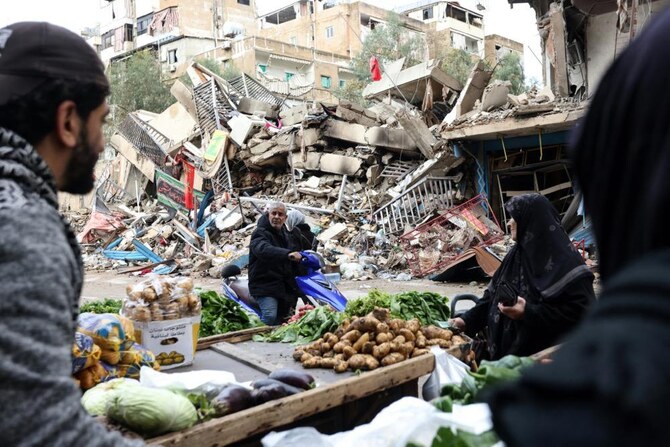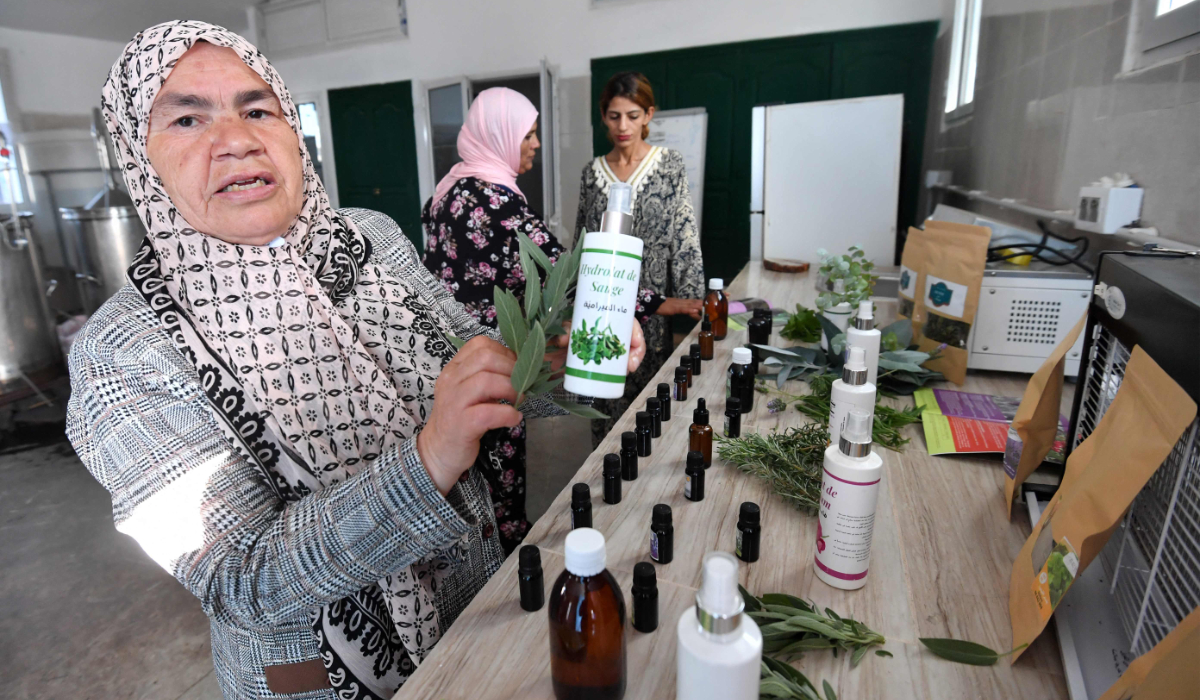Argentina’s decision to withdraw from a football match against Israel was celebrated across Palestine on Wednesday as a victory against the use of sporting events to gloss over “war crimes.”
The World Cup warm-up match was meant to be played on Saturday in the Teddy Kollek Stadium in Jerusalem after Israel relocated the event from the national stadium in Haifa.
The Palestinian effort to persuade the Argentinians to pull out centered on Lionel Messi. The striker is one of the greatest footballers of all time and adored in the occupied territories where his club Barcelona is widely supported.
The Argentinian decision could be the biggest victory yet for the Palestinian movement to tackle the occupation by campaigning for international boycotts and sanctions against Israel.
“The cancelation of the game was a slap in the face for the Israeli government that spent millions for the game to take place in Jerusalem,” said Jibril Rajoub, head of the Palestinian Football Association (PFA).
Rajoub led protests against the match, focusing on how the Israeli government politicized the event. He called the Argentinian decision a “victory” for sport.
Miri Regev, a far-right minister known for her love of the media spotlight, had insisted on moving the match to Jerusalem where it would have taken place on Saturday. The stadium is located in a neighborhood which had once been an Arab village destroyed by Jewish militias in the 1948 Palestinian Nakba.
She was also attempting to orchestrate a handshake photo opportunity with Messi at a time when the status of Jerusalem has become highly inflammatory after the US moved its embassy there. Jerusalem was invaded and occupied in 1967 by Israel, which wants all of the city as its capital. Palestinians want the eastern part as the capital of their future state.
In recent weeks, at least 119 Gazans were killed by the Israeli military in protests linked to Jerusalem and marking 70 years since hundreds of thousands of Palestinians were driven from their land during the formation of Israel.
That Argentina was prepared to cancel one of its precious warm-up matches days ahead of the World Cup illustrates the awkwardness of the situation Israel had placed them in.
In 2013, Messi and his Barcelona teammates toured Israel and Palestine in a carefully planned visit promoting peace in which they trained with children on both sides.
The event could not have been further from the politicking that surrounded this friendly.
The Argentinian football association said that the decision to withdraw was made based on the players’ safety.
Regev claimed “terrorist groups” had made threats against Argentina’s players.
But Palestinians said that the decision was a moral victory. The Boycott, Divestment and Sanctions movement targeted the Argentinian team through its branch in the South American country.
“This was all part of the Israeli apartheid regime’s sports-washing policy to use international sporting events to cover up its war crimes,” Omar Barghouti of the Palestinian Campaign for the Academic and Cultural Boycott of Israel, said. “The fact that Argentina fans and human rights activists around the world succeeded in thwarting it gives us a lot of hope.”
He said that participating in the event would have been a form of complicity “magnified by Israel’s recent horrific massacre in Gaza.”
Susan Shalabi, the deputy director of the Palestinian Football Association, told Arab News that the PFA had contacted all world sports federations to inform them that Argentina was being used by Israel for political purposes.
“At the current time in which the US president and Israeli officials are trying to take Jerusalem off the negotiating table, it is important to see that people power can produce results,” she said.
Shalabi said that if the game was to continue it would have hurt attempts by Argentina to host the world cup in 2030.
Rajoub told “Israel Times” newspaper that his Palestinian football association only began to campaign against the match after Regev decided to move it to Jerusalem and “turn it into a political” event.
“From that moment on Palestinians launched an intense effort to prevent the game from taking place.”
At the weekend, Rajoub called on Palestinians to burn their Messi shirts if the match went ahead.
At a press conference in Ramallah on Wednesday he appeared next to a giant picture of himself with Messi and a sign reading: “From Palestine, thank you Messi.”
Hamadeh Freij, a journalist in Gaza, said that people in the besieged territory were excited about the decision and that the issue dominated discussions during iftar.
Saeb Erekat, the Palestinian Liberation Organization secretary, thanked Argentina for “choosing to abide by the principles of international law and for refusing to yield to any form of bullying, intimidation and extortion.”
The Israel Football Association said that it would file a complaint to FIFA accusing its Palestinian counterpart of pressuring Argentinian players and staff into canceling the match, AFP reported.
In announcing the decision, Claudio Tapia, president of the Argentine Football Association, apologized for canceling the match but said that the safety of the players was at stake.
“It’s nothing against the Israeli community, the Jewish community and I would like everyone to take this decision as a contribution to world peace,” he said.
Prime Minister Benjamin Netanyahu called Argentine President Mauricio Macri and urged him to intervene, to no avail, AP reported.
Israel’s Sports Ministry later claimed a “negotiation” about the match was underway, but gave no further details.
On Wednesday, Israeli opposition figures rounded on Regev, accusing her of mishandling the whole event and scoring a spectacular own goal.
Many Palestinians took to social media, initially to protest against the match and then to thank Argentina for its decision to withdraw.
“Thanks @Argentina & Lionel Messi for canceling Israel ‘friendly.’ “You scored a goal for freedom, justice and equality,” said a relative of Ahed Tamimi, the Palestinian minor jailed in Israel for confronting Israeli forces.





































